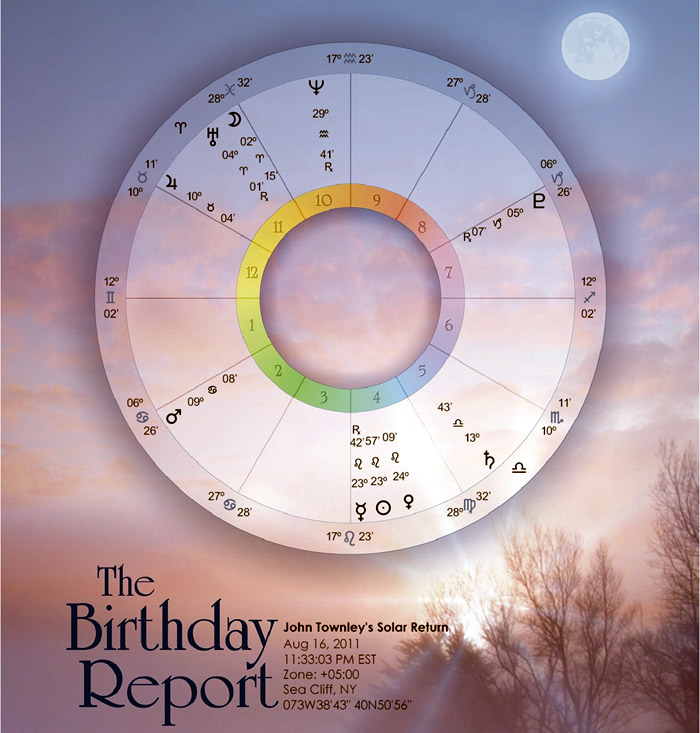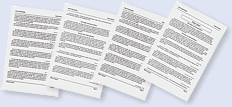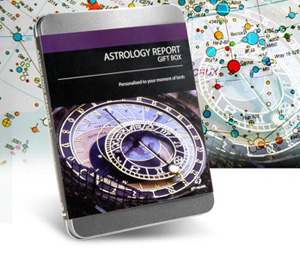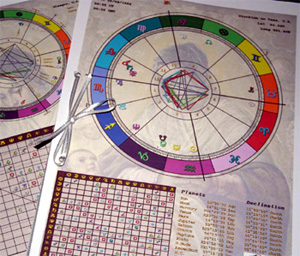|
Wise
Investment or
Waste of Time?
 Should I take this thing seriously, or is it just
random verbiage? The answer lies somewhere in between...
Should I take this thing seriously, or is it just
random verbiage? The answer lies somewhere in between...
By
John Townley, January 2011
The recent, totally
bogus media
kerfuffle over
whether all
the signs in the Zodiac had changed and another one added probably
caught a lot
of legitimate astrologers by surprise. What fueled this incredible
time-waster?
Sheer ignorance. The general public and average reporter just
didn’t know enough
about astrology to dismiss the fraud. In today’s
believe-the-first-thing-you-hear 24/7 news cycle, that’s how
a lot of opinions
are formed and sustained, simply by repeated misinformation fueled by
fear
and/or wishful thinking, from 9-11 conspiracy theories and crazed Obama
fantasies to countless end-of-the-world scares.
So, any real knowledge
about astrology, itself on the fringe of credible for many, relies on
people
getting accurate and truthful
information about the subject. For most it starts with knowing
their
Sun-signs,
and usually the next step is buying one or more modestly-priced
personal reports, to have a peek at a
real, full horoscope. Then, if that seems to work, the next move is to
a
pricier consultation with a professional astrologer, or to study it in
depth
through books, classes, or a traditional apprenticeship.
This makes the lowly,
computer-generated personal astrology report a critical gateway, a
midwife to the field itself. If a report is interesting and
insightful,
you
keep on going – if not, you conclude there’s not
much to it. So, it’s very
important that they be worthwhile. But are
they, in fact, really any
good? And
if so, what are they good for, if the only “real
thing” is a live, consulting
astrologer?
Here’s
a brief history
and consumer guide to astrology
reports, from one who has himself been there and done that (I have
written the
text for seventeen different report programs), an analysis of their
usefulness,
and tips on picking the good and avoiding the bad:
In the
beginning...
Before
there were computer reports,
in the 1960s-70s, there
was the astrological
“cookbook”, which gave a
couple of paragraphs of
interpretation for every planet in each sign, house, and aspect. The
student/novice would need to have a copy of an already-calculated
horoscope and
would then look up the appropriate paragraphs to read about it. That
required a
certain level of commitment and follow-through that most people
didn’t have
then and almost nobody has now, so it had a limited audience, mostly of
student
astrologers.
Then, in
the mid-1970s, only a few years
before the advent of the
first personal computers, a Massachusetts entrepreneur (Frank Molinski)
had the bright idea
of
publishing a large series of astrological cookbooks on various
specialized
areas (love, relationships, transits, progressions, houses, and more),
which
could both be offered for sale in bookstores to the burgeoning New Age
market
and the plug-in text used in a computer printout from a business
computer. This
became the “Planets In” series (Planets In Love, Planets In
Transits, Planets In Houses,
lots more), for which he
commissioned works by a number of leading and rising astrologers, such
as Rob
Hand, Robert Pelletier, and myself, published by Para Research and
later sold
to Schiffer Books (and their report rights to AstroDienst, which still
sells
them, but with no royalty to the authors).
  
A
flood of verbiage...
That
turned out to be so successful
that when home computers
arrived on the scene only half a decade later, along with accompanying
chart
calculation programs, everybody decided to get in on the act, with
companies
begun by Michael Erlewine (Matrix) and Rob Hand (Astrolabe) leading the
way.
Since then, a host of computer report companies have sprung up all over
the
world, starting with text by well-known astrologers who really knew
their stuff
and broadening out to trash written by would-be journalists with at
best a
smattering of astrological knowledge, just out to make a buck.
It’s a good bet
that the latter outnumbers the former now, which makes it a truly
buyer-beware
market. As of this writing, if you just Google “astrology
report”, you get
nearly a half-million results, and you can flip a coin as to whether
any one
report you find there is real or phony, or something in between. How
can you tell
the difference? And, assuming you get a good one, what use is it,
really?
 
Personal
astrology reports can be attractive and useful, but buy for content,
not packaging and promises...
Why
buy one at all?
If an
astrological report is only
halfway between the
shallows of Sun-signs and the depths of a pro consultation, what good
is it to
begin with? Who buys them, and what’s the benefit?
First, you buy
them for a new level of insight (especially for a natal chart
report or
a comparison
or composite), to see
what all those other planets in your horoscope mean (and they mean a
lot)
individually – a list of general meanings of your planetary
placements and
aspects. A computer can’t integrate all that information and
draw conclusions,
which right now only an experienced professional can do, but
it’s a start. You
get a whole new set of multiple levels of meaning to help you
familiarize
yourself with what’s going on inside your chart and get
better acquainted with
astrology in general. It’s personally useful to anyone, and a
student may find
it useful to get multiple reports to see how these placements work in
other people’s
charts.
Second, you often
get a set of dates for timing events (in reports which include transits
and progressions) –
times you might want to hold back, times
especially
good for forging ahead. These are useful to everybody, including even
professionals
like myself who may overlook something that a computer will always pick
up.
Calendar reports like Daywatch are
particularly good for this.
Third, regardless
of whether you’re a beginner or a pro, a computer picks up
every position and
aspect in a chart and spits it out, just so you don’t miss
it, pass over it, or
simply forget it. After nearly forty years of practice, I’m
still reminded of
things reading my own reports that I haven’t thought about
recently or have
become more important lately than they used to be. That in itself is
good
reason to have a couple of reports on hand covering both natal,
progressions,
and transits. They cover all bases and serve as a background benchmark
for your
own development.
The
question is, which one to buy,
and which to avoid? That's
next...
Some
reports are drawn directly from books by established authors (as
above)...those may be best bets...
Separating
the wheat from the
chaff...
First, before
you
buy, check if there’s an author.
If none is listed (and
that’s frequent), don’t
buy it. It could be anything, even a stolen report from a real author,
but
likely it’s not even that.
Then, if there is
an author, Google him/her. Is
there a website, is there a track record
of any
kind? Most importantly, is this author published? Not
a self-published
e-book, but on real paper from a known publisher. I
know this favors age, but experience is important and the more the
better,
which a significant publishing record will tell you. So will reviews of
the
books and other Web commentary. And for younger writers, are they
published in
magazines or on other websites, or are they speaking at astrological
conferences where they must demonstrate credence among their peers?
Next, if
it’s by
someone who is well-known or seems reputable, see if you can get a better
price. The best reports often come from report-writer software
produced
by
larger companies which are bought by individuals (middlemen) who then
sell you
the report at varying markups. Shop around for the best price, or you
could
wind up paying double for the same author.
Finally,
balance
the price with where you are buying it from. At a big portal website,
non-astrologer staff (or worse, no live person at all) will run your
data
through without even looking at it, and if there’s an error,
you’ll have to
catch it. On smaller websites run by real astrologers (such as here at
AstroCocktail, or the sites of the writers or publishers themselves)
the
astrologer-owners are more closely involved, more likely to spot
errors, and
have the personal expertise to correct them or to follow up with help
if you
don’t understand them. Personal, expert
service really
counts, beyond just
what’s in the printout.
New
developments, and the future...
That’s
a quick wrap on
the often-confusing world of
computerized astrology reports, which haven’t changed all
that much since they
first began in the 1970s, except to get shorter and less thorough in
response
to the public’s diminishing attention span. There’s
a new, value-added class
that includes visual interpretation,
produced by Matrix Software with
symbolic
illustrations for each paragraph, which can be really helpful, as a
picture can
truly be worth a thousand words. But a computer report that can put it
all
together and sort out what’s really important and
what’s second tier, the
dynamic interplay of all the parts, has yet to be written. However,
that could soon be a possibility, with a combination of artificial intelligence (AI) and expert
systems
programming. Indeed, some years ago I vainly tried to put
together the best of
the best from
astrology and from NASA’s AI division to that purpose, in the
same
room, but they
just couldn’t relate to each other. Still, it will likely happen
someday soon, as just
such next-generation computer
interpretation is already on the drawing
board…
In the
meantime, pick your
preference of what’s out there
with care, and then make the best of what you find – to learn
more about both
yourself and the unifying as-above-so-below philosophy that astrology
has
always represented…
To start, you
can check out 22
different reports here we
recommend, with samples, and they’re all
on
sale!
Report
graphics may promise unlikely bliss...but they can still have real
value for insight, reference, timing...
Background: reports
with
text by John Townley:
Passion
Potential,
(Matrix Astrology
Software,
also called The Eros Report)
The Birthday Report (Matrix
Astrology Software)
Togetherness (book by
Llewellyn, report
on Time Cycles Research, Matrix
Astrology Software)
Time Together (Matrix
Astrology Software)
DayWatch (Matrix
Astrology Software)
WinStar Express
(Matrix
Astrology Software)
Horizons (Matrix
Astrology Software)
Know Your
Lover(Matrix
Astrology Software)
Know Your
Dog (Matrix Astrology
Software)
Lunar Returns (book by
Llewellyn, report
on Matrix
Astrology Software)
Relating Potential (Matrix
Astrology Software)
Lucky Lottery
(Matrix Astrology Software)
Planets
In Love
(book by
Para Research, Shiffer, report is
Astrodient’s Love, Flirtation, and
Sex)
Sexoscope
(Astrolabe)
Not
a
newsletter subscriber already? Subscribe
Free Here!
--
Breaking news from
around the globe, plus articles, reviews, it's all happening there,
changes daily...
|

